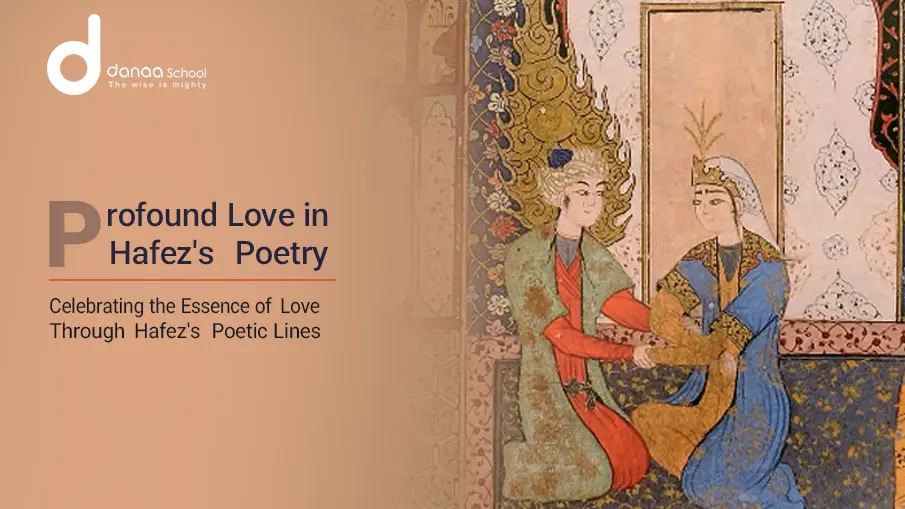Hafez’s poetry captures the heart and soul, transcending the boundaries of time and culture. His mystical verses open windows into spiritual awakening and profound contemplation. One such poem, “Last night my Beloved rose to me…”, invites readers into a realm of divine love and self-discovery.
Who Was Hafez?
Hafez, also known as Khwāja Shams-ud-Dīn Muhammad Hāfez-e Shīrāzī, was a 14th-century Persian poet whose work has enchanted readers for centuries. Known for his lyrical mastery and mystical depth, Hafez explored themes of divine love, existential reflection, and spiritual truth.
The Timeless Appeal of Hafez’s Poetry
Despite being written centuries ago, Hafez’s poetry remains deeply relevant today. His verses bridge the human and the divine, offering insight into love, spirituality, and the meaning of existence. This timeless quality has secured his place at the heart of Persian literary heritage.
Analyzing “Last Night My Beloved Rose to Me…”
One of Hafez’s most evocative mystical poems, this short verse encapsulates divine encounter and spiritual surrender:
Last night my Beloved rose to me,
Pouring wine upon my lips, my eyes.
From His hand, a blood-stained cup,
My heart became His sacrifice.
Themes and Imagery
The “Beloved” in Hafez’s poetry often symbolizes the Divine. Wine represents spiritual intoxication—ecstasy born of divine love—while the blood-stained cup and the sacrificed heart point to complete surrender and mystical union.
Mysticism and Spirituality
This poem reflects core Sufi beliefs: the soul’s longing for union with the Divine and the necessity of sacrifice on the spiritual path. Trials and ecstasies coexist, and true fulfillment emerges through devotion and inner transformation.
The Role of Divine Love in Hafez’s Poetry
In Hafez’s work, love is not merely an emotion—it is a spiritual force that leads to divine understanding. The Beloved’s presence in this poem represents a moment of mystical union where the self dissolves into higher truth.
Metaphorical Language
Hafez’s metaphors allow multiple interpretations. Wine, blood, and sacrifice function on both literal and symbolic levels, encouraging readers to explore their own spiritual experiences through his verses.
The Impact of Hafez’s Poetry on Persian Culture
Hafez’s influence on Persian culture is immense. His poetry is quoted in everyday conversation, music, literature, and even traditional divination practices. His themes of love and divine longing continue to resonate across generations.
Hafez’s Legacy
Hafez’s Divan remains one of the most cherished works in Persian literature. Translated into many languages, his poetry has reached a global audience, affirming the universal appeal of his spiritual vision.
Learning from Hafez Today
In a fast-paced modern world, Hafez’s poetry offers stillness, reflection, and depth. His insights into love, sacrifice, and spiritual awareness remain as relevant today as they were centuries ago.
Engaging with Hafez’s Work
If you wish to explore Persian poetry and mysticism more deeply, Danaa School offers courses that guide learners through classical texts like Hafez, helping connect ancient wisdom with modern life.
FAQs
What are the main themes in Hafez’s poetry?
Hafez’s poetry often explores themes of divine love, spiritual longing, and the journey toward enlightenment. His works also delve into human emotions and existential reflections.
How does Hafez use metaphor in his poetry?
Hafez employs metaphorical language to convey deeper spiritual truths. Symbols like “wine” and “the Beloved” represent divine love and the soul’s quest for union with the divine.
Why is Hafez’s poetry still relevant today?
Hafez’s exploration of love, spirituality, and the human condition provides timeless insights that resonate with modern readers, offering a moment of reflection in a fast-paced world.
How can I learn more about Hafez and Persian literature?
Danaa School offers courses that explore Hafez’s poetry and Persian literary traditions. These programs provide a deep dive into classical texts and their modern-day applications.
Conclusion
Hafez’s poem “Last night my Beloved rose to me…” is a testament to his ability to weave complex spiritual ideas into accessible and evocative poetry. His work invites us to explore the depths of divine love and spiritual union, encouraging a journey of self-discovery and enlightenment. To delve deeper into the world of Hafez and other Persian literary treasures, consider exploring the enriching courses at Danaa School. Engage with the timeless wisdom of Hafez and uncover the mystical beauty of Persian literature with us.










